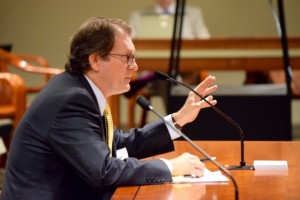Yesterday afternoon the Senate Finance Committee reported Senate Bills 1038, 1039 and 1040, bills that make changes to the tax appeal process and the Michigan Tax Tribunal Act.
The League has a lot of concerns regarding the way the Tax Tribunal has been valuing property and the losses sustained by our local communities; however, this legislation does not make changes that would address those concerns.
The League sent a list of concerns to the sponsor, Senator Caswell, and he addressed several of those concerns. However there are several large issues that remain unresolved.
First and foremost we think this legislation is a solution in search of a problem. The Department of Treasury is pushing for this legislation; however, none of the stakeholders who actually use the tax appeals process (including local units of government and the business community) are interested in this legislation passing. Local government and schools are opposed, and the business community is neutral but not pushing for the legislation to move.
Another concern is a 3-year look back for property tax appeals which would create uncertainty for local budgets. In addition this could be problematic for the newly passed personal property tax repeal package.
In an attempt to “streamline” the process, the bills instead take away local control and make the process more cumbersome for both taxpayers and local units of government. The legislation now heads to the full Senate for approval. Please contact your Senator and ask them to vote no on this legislation!
Samantha Harkins is the Director of State Affairs for the League handling municipal finance issues. She can be reached at sharkins@mml.org or 517-908-0306.


